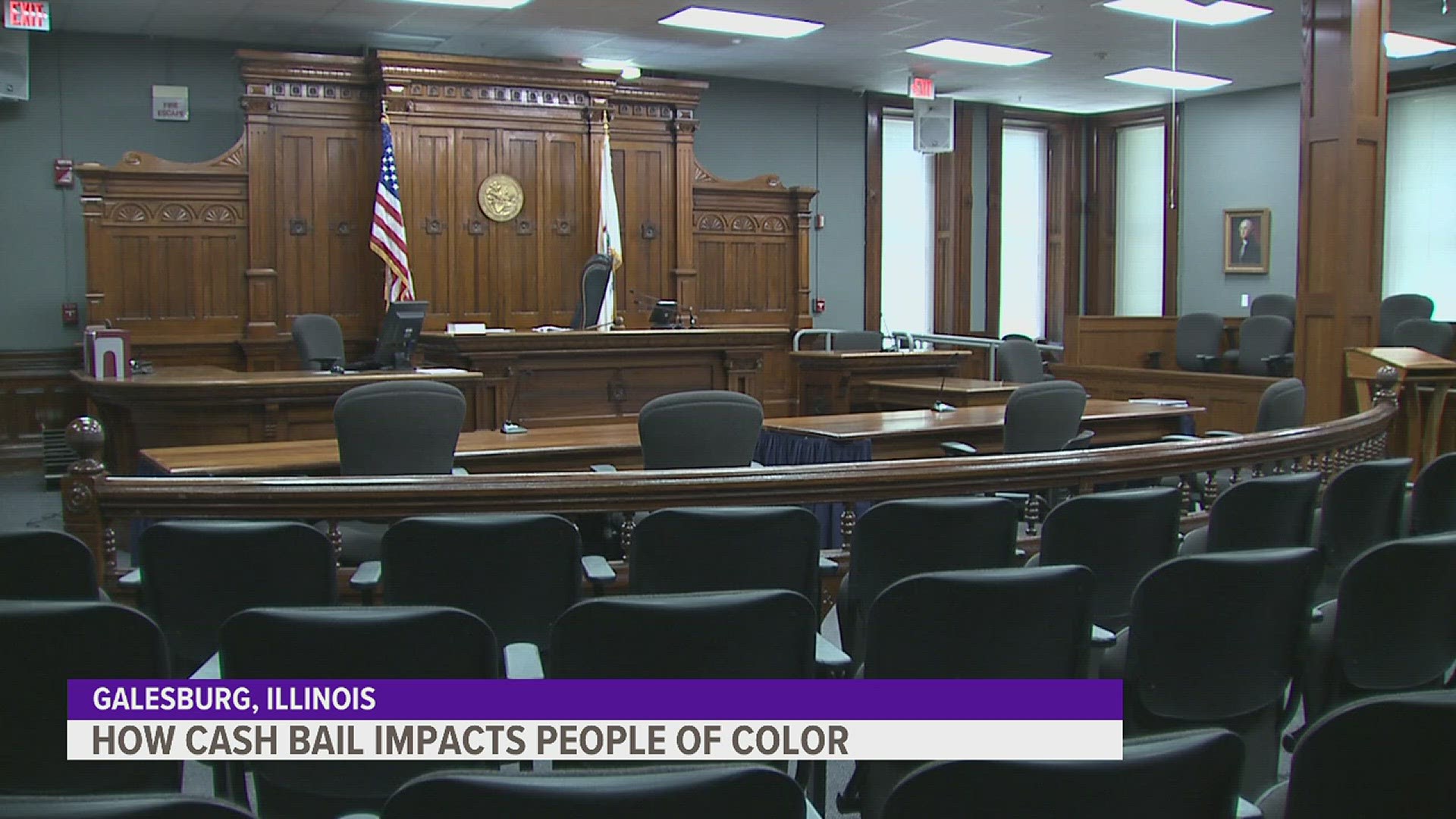ILLINOIS, USA — On Sept. 18, Illinois is set to become the first state to completely eliminate cash bail, a practice statistics show keeps low-income people and people of color disproportionately in jail.
The U.S. Commission on Civil Rights found that more than 60% of defendants in U.S. jails are eligible for release but are kept in custody before trial because they can't afford to pay bail. On any given day, that's an estimated half a million Americans. Since 1970, the number of people eligible for release has soared 433%, according to the commission. Most are held on low-level offenses and are people of color.
"It's in the data," said Thurgood Brooks, a Rock Island resident who has advocated for racial justice in the Quad Cities. "Our prison system and how it was operating has, in some ways, targeted people of color."
The median felony bail bond is $10,000, the equivalent of eight months' income for the typical detained defendant, according to The Prison Policy Initiative. The nonprofit reported that the median annual income in the U.S. for men ages 23-39 in local jails who were unable to post a bail bond is $15,598 for men detained pretrial. The median annual income for men not incarcerated is $39,600.
When it studied the media annual pre-incarceration incomes for people in state prisons ages 27-42, Black men, on average, make $17,625.
"It's no surprise that people of color — who face much greater rates of poverty — are dramatically overrepresented in the nation's prisons and jails," the nonprofit wrote in a study. "These racial disparities are particularly stark for Black Americans, who make up 38% of the incarcerated population despite representing only 12% of U.S residents."
The organization also found that in Illinois, Black Americans make up 56% of the incarcerated population, but only 15% of the state population.
"It was long overdue," Brooks said. "Money should not be a reason why someone who has committed an egregious crime, or not, stays in jail."
The ACLU of Illinois worked with a coalition in support of the SAFE-T Act.
"Our criminal legal system disproportionately impacts people of color. You look at every step along the way," said Ed Yohnka, the director of communications and public policy. "The Illinois Department of Transportation last week released data for 2022. Statewide, if you're a Black driver, you're far more likely to be stopped just for a traffic stop than if you're a white motorist. It's twice as often."
The Prison Policy also found that nationwide, people of color are at least 10-25% more likely than white defendants to be detained pretrial or to have to pay bail. In addition, those bail amounts are set twice as high.
"Sons go without dads, daughters go without moms, daughters go without dads and sons go without moms," Brooks said. "We're talking about a community. Those important to having a family structure and stability... Looking at just the dollars alone that come into households and then you consider bills. Bills don't stop because someone goes to jail, right?"
"In many ways, we can enhance public safety and public security by keeping people secure in their lives, in their homes, by not having this burden of bond exist for them," Yohnka said.
Both Brooks and Yohnka see the ending of cash bail in Illinois as a step in the right direction to ending racial disparities in the criminal justice system. However, it's still up to the judges and attorneys to decide who meets a threshold to be detained pretrial.
"That's a place where everyone within the system is going to play a critical role," Yohnka said. "In two years, and we're looking at this data, I think it is likely that more people of color will still be detained than white folks, even charged with the same offense. But perhaps we can reduce that disparity that exists now and also put ourselves on a trajectory where we can eliminate it."
"I think this is a true opportunity because there are metrics in place, there are parameters put in place that are designed to make it equitable," Brooks said. "I trust out judges, trust the State's Attorneys. I believe that if we, the people, remain vigilant and active and aware of what's going on, we can minimize that risk."
According to Rock Island Public Defender Hany Khoury, it's difficult to know at this time how many defendants in custody could qualify for release on Sept. 18 when cash bail is eliminated. He said his office will start reviewing its in custody case files a week or two before to make that determination. From there, his office will begin filing motions to request the release of clients who are in custody on non-detainable offenses, but weren't able to post bond. He also can't say if the law, once it takes effect, will result in more or less defendants being detained.

